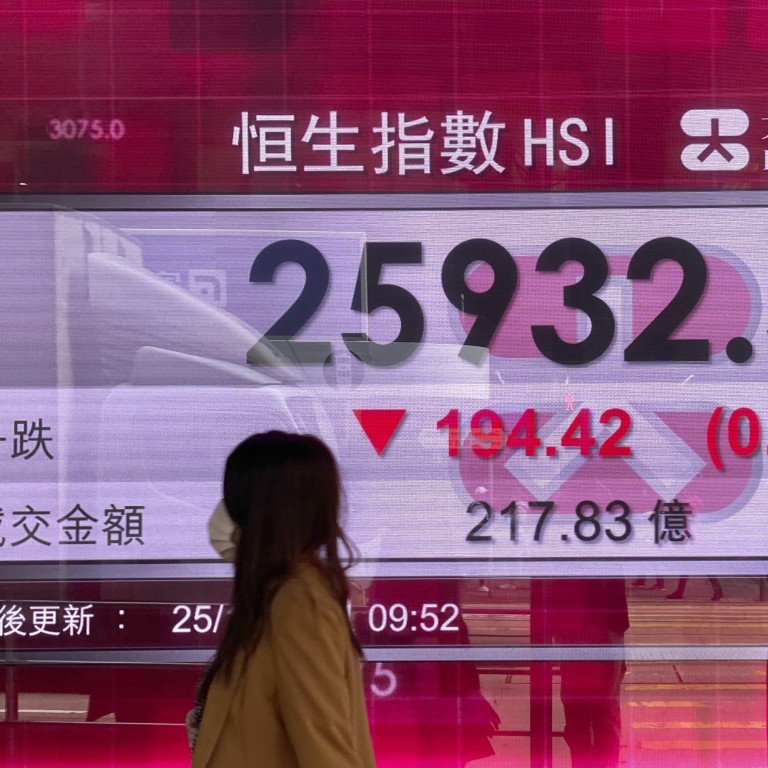
Hong Kong stocks slide on Alibaba Health’s profit warning while Chinese developers tumble amid debt default concerns
- Alibaba Health likely swung to a net loss in the first-half to September, while BYD advanced on approval for a plan to spin off chipmaking unit
- Developers continued to drag the market on concerns about debt default after Modern Land (China) reneged on a dollar bond repayment
The Hang Seng Index dropped 0.4 per cent to 26,038.27 at the close on Tuesday, retreating from near a six-week high. The Hang Seng Tech Index fell for a second day, losing 1.3 per cent. The Shanghai Composite Index slipped 0.3 per cent.
Caution prevailed before third-quarter earnings reports from some of the biggest Hang Seng stocks. Twelve of the 60 members are expected to report in the following week, including pork processor WH Group’s results on Tuesday. The index members probably posted a 2.4 per cent decline on average, according to Bloomberg data.
“Rising commodity prices, the regulatory crackdown and the expectations about the tapering in the US have weakened investors’ expectations for earnings,” HSBC Jintrust Fund Management said in a report. “But looking to 2022, all these factors will probably recede and Hong Kong stocks might already be building a bottom in the fourth quarter.”
Alibaba Health tumbled 11 per cent to HK$10.98 after projecting as much as 320 million yuan (US$50.1 million) net loss in the first half to September 30, compared with a 279 million yuan profit a year earlier. The stock was the worst performer on the Hang Seng Index.
China Resources Land and Longfor Group paced losses among Chinese developers, falling 6.7 per cent and 4.3 per cent respectively. Modern Land failed to pay the principal and interest on a US$250 million bond due on October 25. Property stocks were also broadly weaker following Beijing’s plan to introduce a property tax programme in more mainland cities.
BYD jumped 2.8 per cent to HK$311.40 after getting the approval from the Hong Kong stock exchange to spin off its semiconductor unit in Shenzhen.
Three debutants started trading on the mainland. China Resources Chemical Innovative Materials surged 82 per cent in Shenzhen. Sichuan Huiyu Pharmaceutical rose 1.9 per cent on Shanghai’s Star Market and Wayz Intelligent Manufacturing Technology dropped 13 per cent.
Major markets in Asia all reported early gains, led by an almost 2 per cent jump in Japan’s stock benchmark. The S&P 500 index rose to a record in overnight trading as Democrats moved closer to an agreement on President Biden’s multi-trillion dollar economic spending agenda, including a US$550 billion infrastructure bill.

